Diarmaid MacCulloch Quotes & Sayings
Enjoy the top 19 famous quotes, sayings and quotations by Diarmaid MacCulloch.
Famous Quotes By Diarmaid MacCulloch
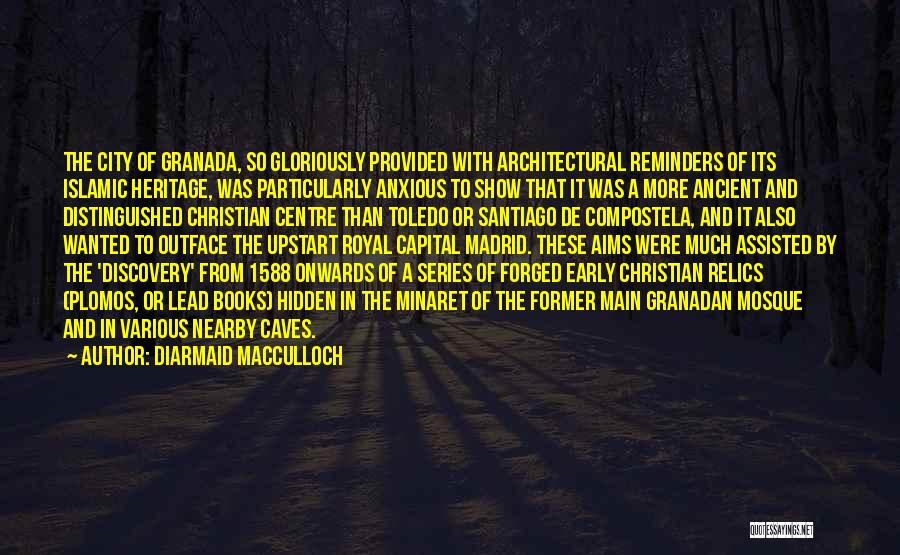
The city of Granada, so gloriously provided with architectural reminders of its Islamic heritage, was particularly anxious to show that it was a more ancient and distinguished Christian centre than Toledo or Santiago de Compostela, and it also wanted to outface the upstart royal capital Madrid. These aims were much assisted by the 'discovery' from 1588 onwards of a series of forged early Christian relics (plomos, or lead books) hidden in the minaret of the former main Granadan mosque and in various nearby caves. — Diarmaid MacCulloch
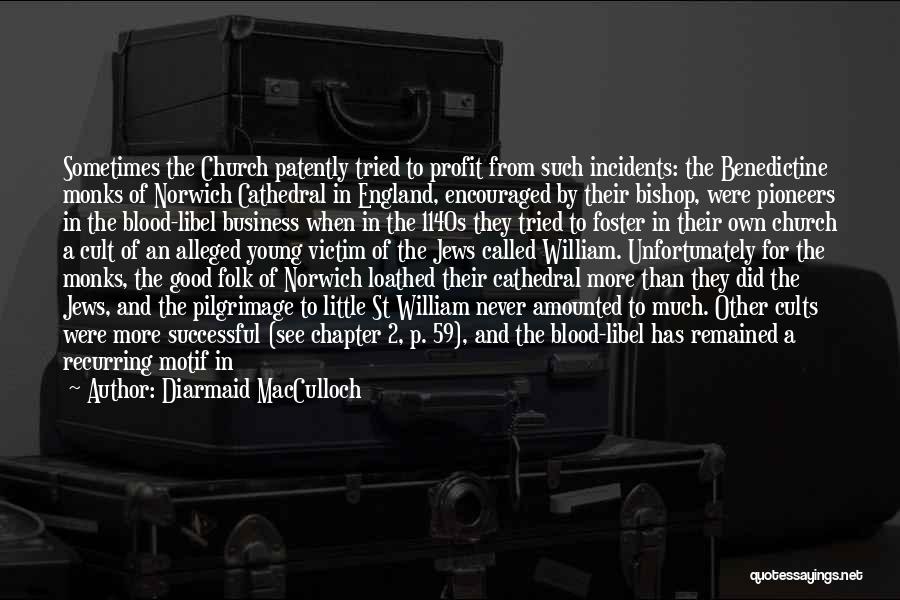
Sometimes the Church patently tried to profit from such incidents: the Benedictine monks of Norwich Cathedral in England, encouraged by their bishop, were pioneers in the blood-libel business when in the 1140s they tried to foster in their own church a cult of an alleged young victim of the Jews called William. Unfortunately for the monks, the good folk of Norwich loathed their cathedral more than they did the Jews, and the pilgrimage to little St William never amounted to much. Other cults were more successful (see chapter 2, p. 59), and the blood-libel has remained a recurring motif in the worst atrocities against the Jews. — Diarmaid MacCulloch
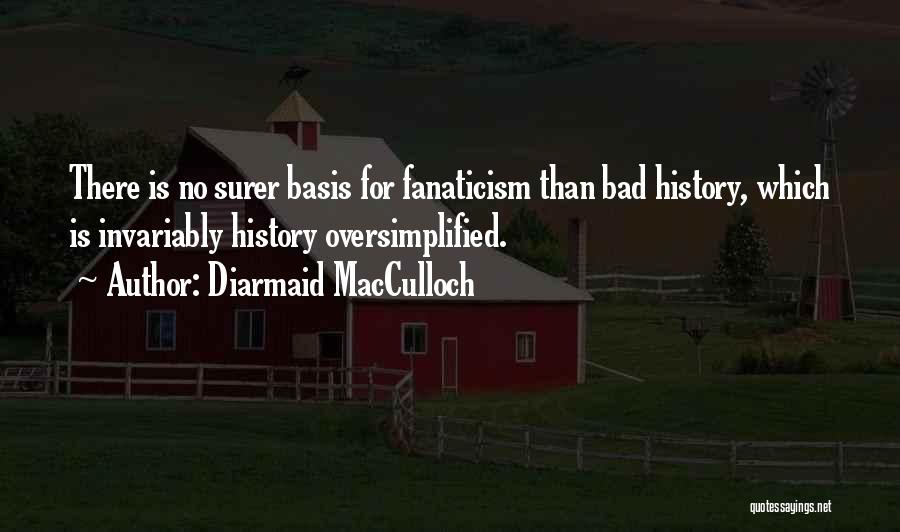
There is no surer basis for fanaticism than bad history, which is invariably history oversimplified. — Diarmaid MacCulloch
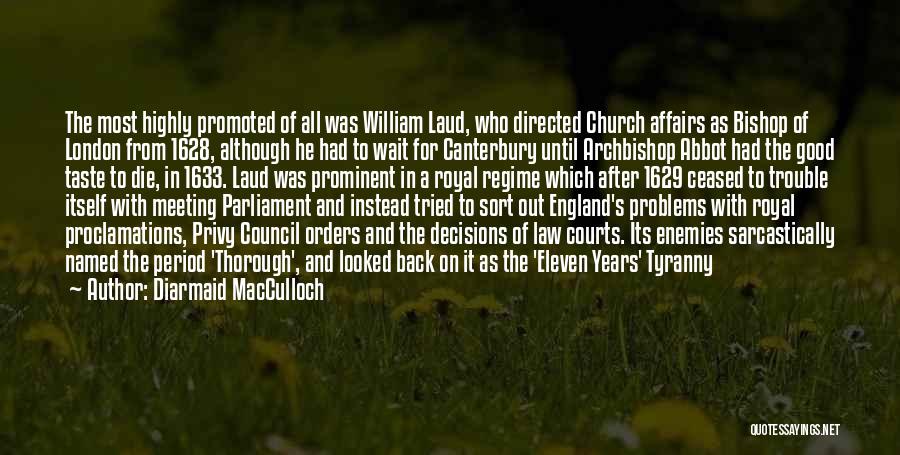
The most highly promoted of all was William Laud, who directed Church affairs as Bishop of London from 1628, although he had to wait for Canterbury until Archbishop Abbot had the good taste to die, in 1633. Laud was prominent in a royal regime which after 1629 ceased to trouble itself with meeting Parliament and instead tried to sort out England's problems with royal proclamations, Privy Council orders and the decisions of law courts. Its enemies sarcastically named the period 'Thorough', and looked back on it as the 'Eleven Years' Tyranny — Diarmaid MacCulloch
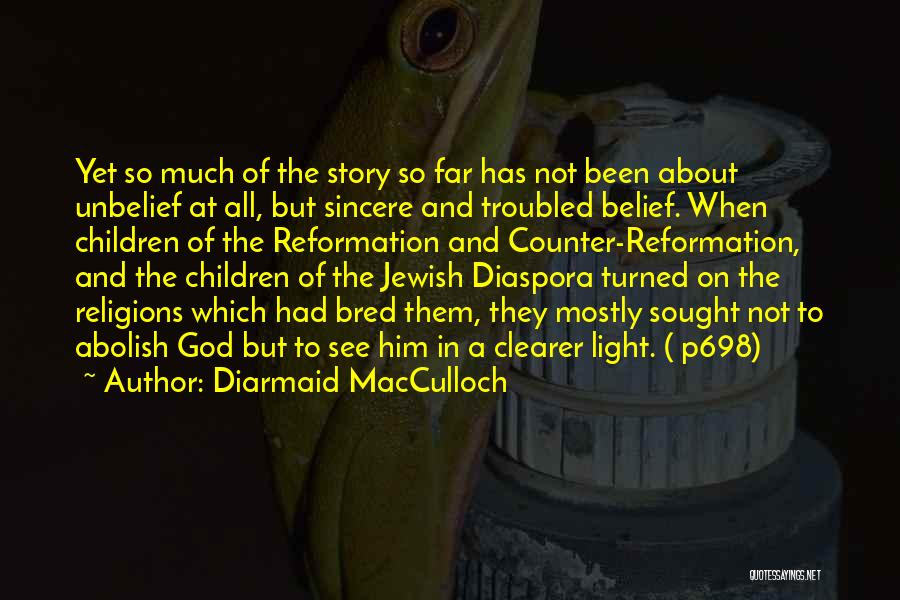
Yet so much of the story so far has not been about unbelief at all, but sincere and troubled belief. When children of the Reformation and Counter-Reformation, and the children of the Jewish Diaspora turned on the religions which had bred them, they mostly sought not to abolish God but to see him in a clearer light. ( p698) — Diarmaid MacCulloch
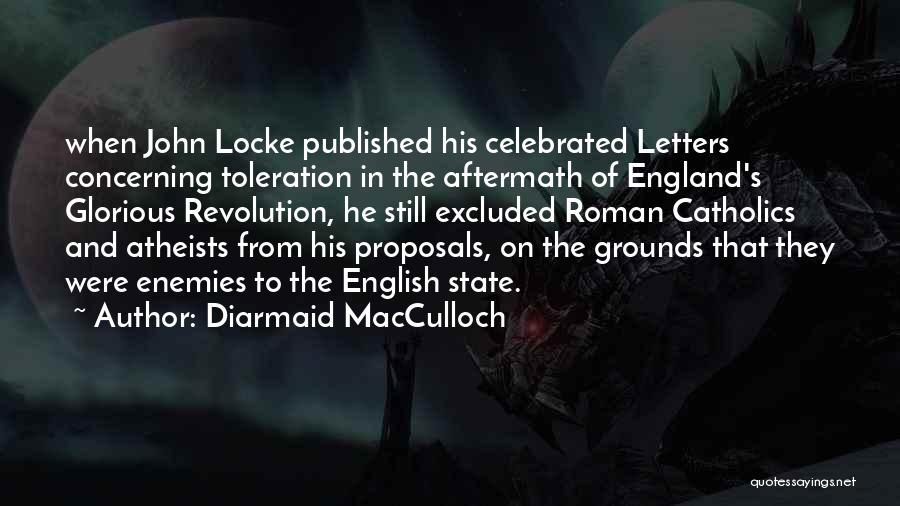
when John Locke published his celebrated Letters concerning toleration in the aftermath of England's Glorious Revolution, he still excluded Roman Catholics and atheists from his proposals, on the grounds that they were enemies to the English state. — Diarmaid MacCulloch
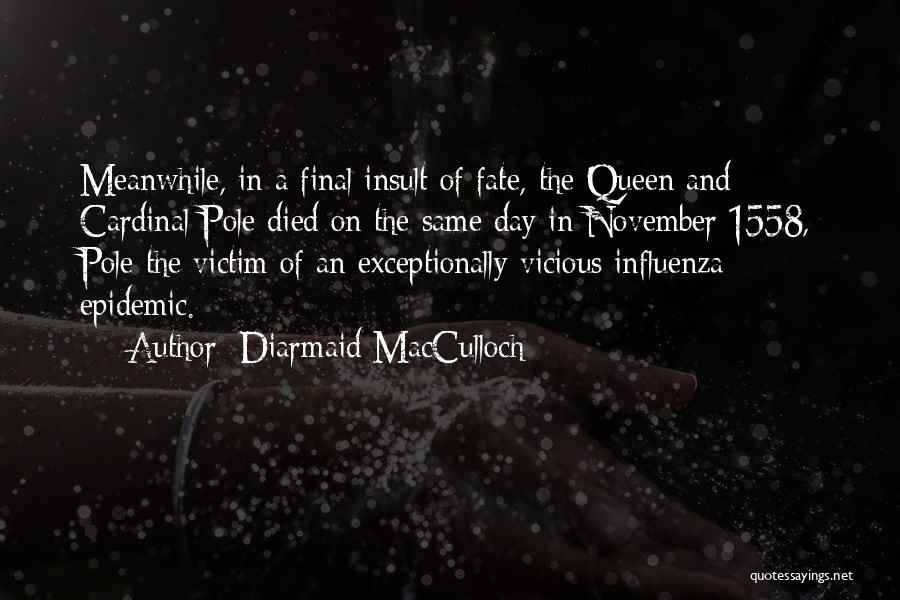
Meanwhile, in a final insult of fate, the Queen and Cardinal Pole died on the same day in November 1558, Pole the victim of an exceptionally vicious influenza epidemic. — Diarmaid MacCulloch

I was brought up in the presence of the Bible, and I remember with affection what it was like to hold a dogmatic position on the statements of Christian belief. I would now describe myself as a candid friend of Christianity — Diarmaid MacCulloch
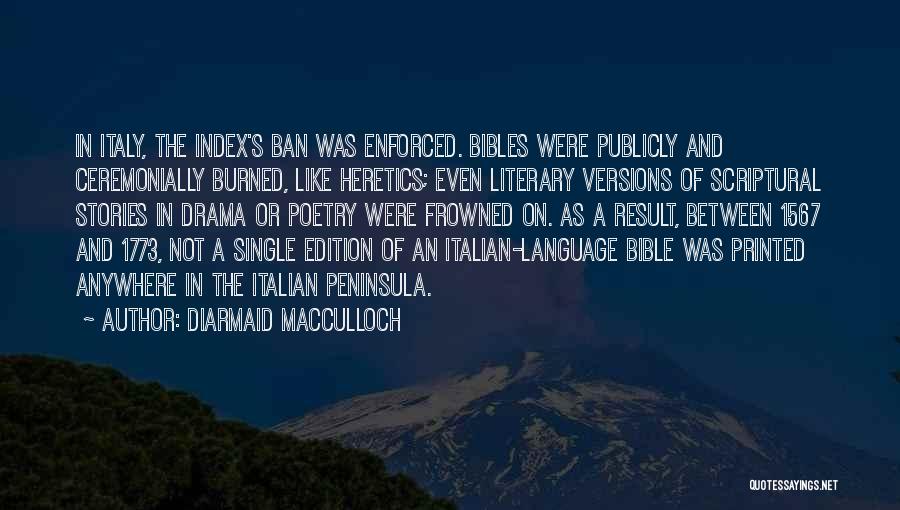
In Italy, the Index's ban was enforced. Bibles were publicly and ceremonially burned, like heretics; even literary versions of scriptural stories in drama or poetry were frowned on. As a result, between 1567 and 1773, not a single edition of an Italian-language Bible was printed anywhere in the Italian peninsula. — Diarmaid MacCulloch
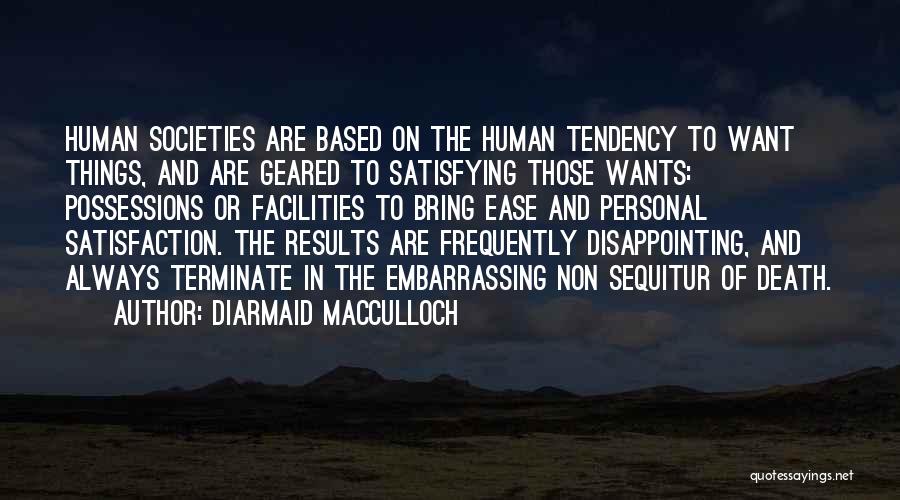
Human societies are based on the human tendency to want things, and are geared to satisfying those wants: possessions or facilities to bring ease and personal satisfaction. The results are frequently disappointing, and always terminate in the embarrassing non sequitur of death. — Diarmaid MacCulloch
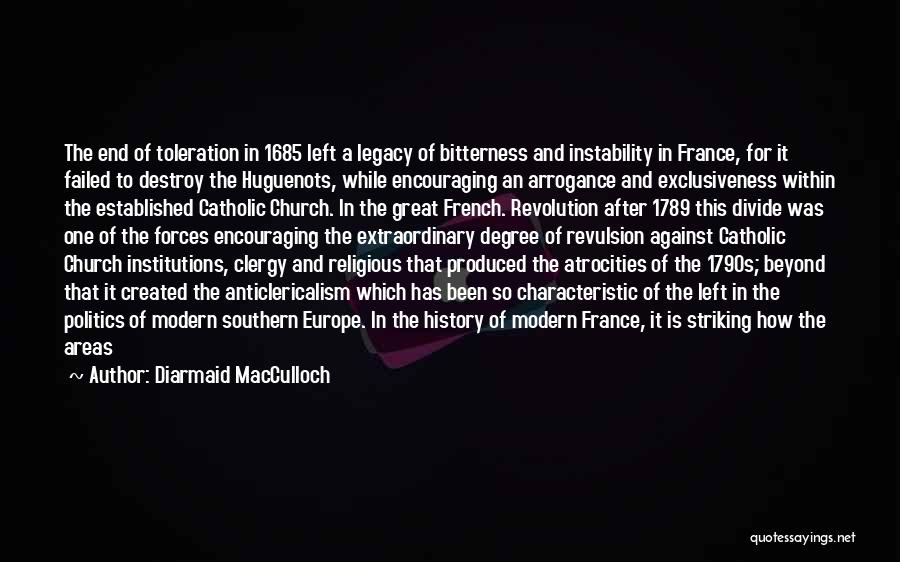
The end of toleration in 1685 left a legacy of bitterness and instability in France, for it failed to destroy the Huguenots, while encouraging an arrogance and exclusiveness within the established Catholic Church. In the great French. Revolution after 1789 this divide was one of the forces encouraging the extraordinary degree of revulsion against Catholic Church institutions, clergy and religious that produced the atrocities of the 1790s; beyond that it created the anticlericalism which has been so characteristic of the left in the politics of modern southern Europe. In the history of modern France, it is striking how the areas in the south that after 1572 formed the Protestant heartlands continued to form the backbone of anti-clerical, anti-monarchical voters for successive Republics, and even in the late twentieth century they were still delivering a reliable vote for French Socialism. — Diarmaid MacCulloch
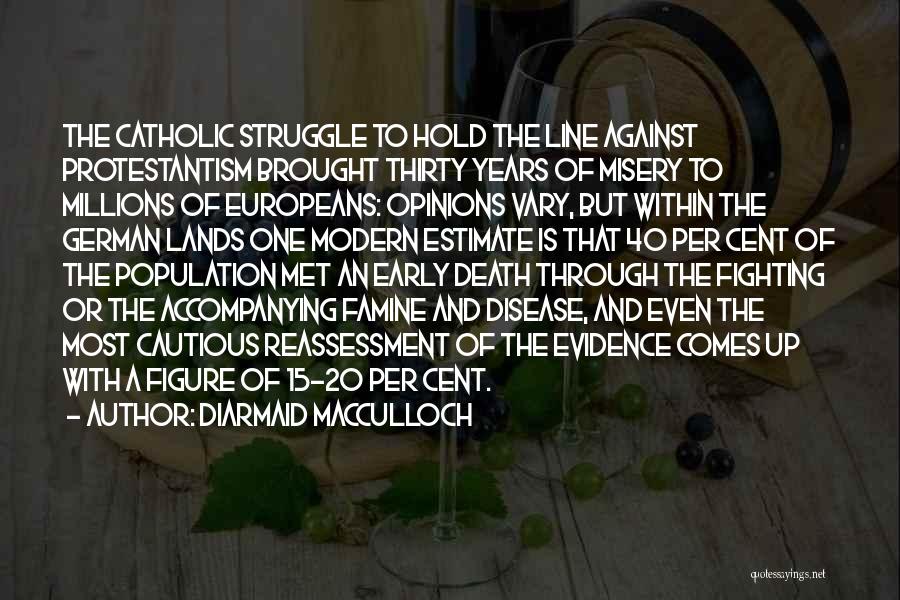
The Catholic struggle to hold the line against Protestantism brought thirty years of misery to millions of Europeans: opinions vary, but within the German lands one modern estimate is that 40 per cent of the population met an early death through the fighting or the accompanying famine and disease, and even the most cautious reassessment of the evidence comes up with a figure of 15-20 per cent. — Diarmaid MacCulloch
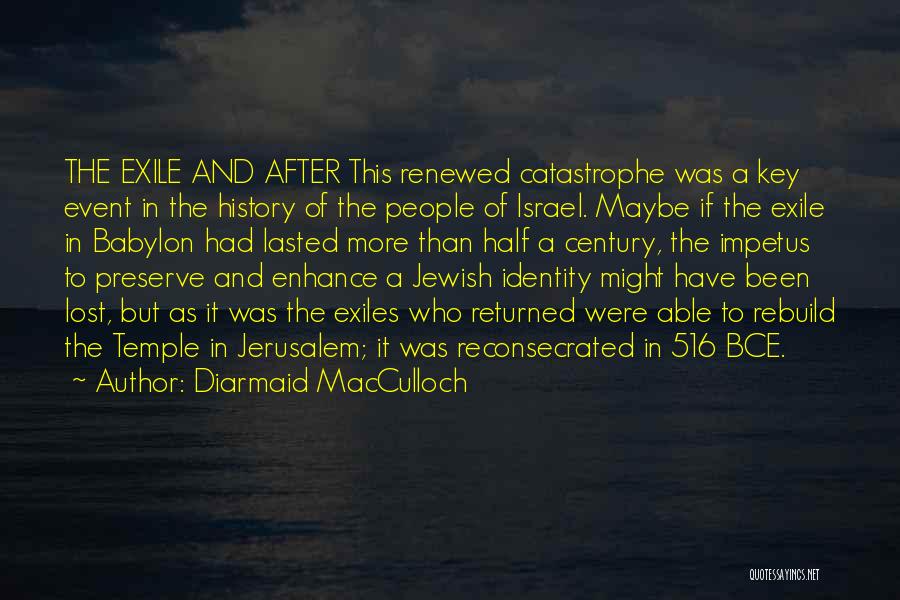
THE EXILE AND AFTER This renewed catastrophe was a key event in the history of the people of Israel. Maybe if the exile in Babylon had lasted more than half a century, the impetus to preserve and enhance a Jewish identity might have been lost, but as it was the exiles who returned were able to rebuild the Temple in Jerusalem; it was reconsecrated in 516 BCE. — Diarmaid MacCulloch
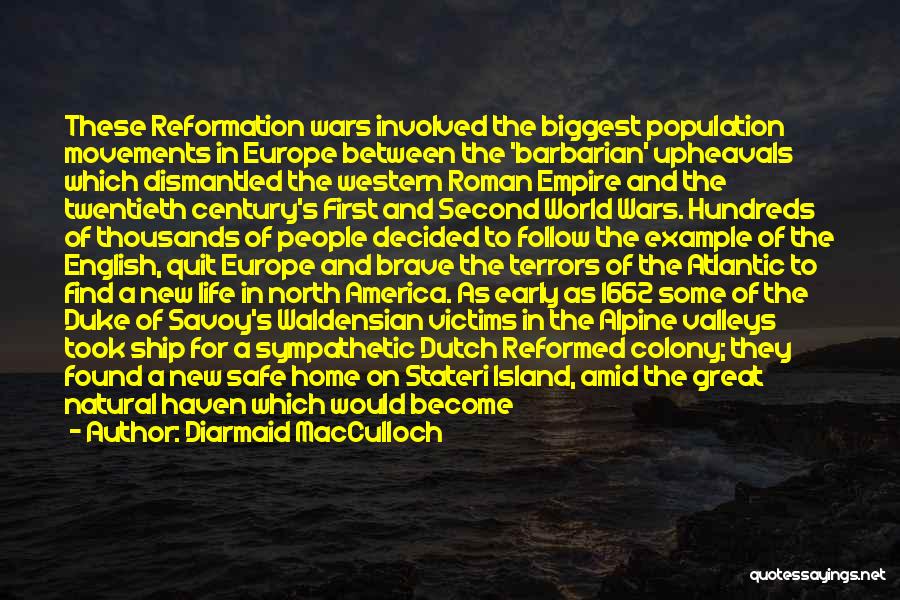
These Reformation wars involved the biggest population movements in Europe between the 'barbarian' upheavals which dismantled the western Roman Empire and the twentieth century's First and Second World Wars. Hundreds of thousands of people decided to follow the example of the English, quit Europe and brave the terrors of the Atlantic to find a new life in north America. As early as 1662 some of the Duke of Savoy's Waldensian victims in the Alpine valleys took ship for a sympathetic Dutch Reformed colony; they found a new safe home on Stateri Island, amid the great natural haven which would become New York.3 — Diarmaid MacCulloch
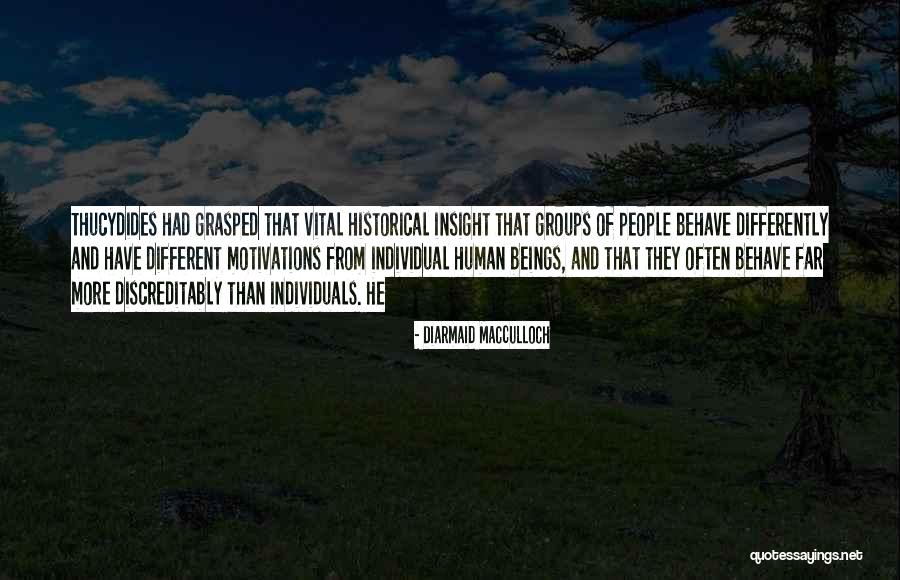
Thucydides had grasped that vital historical insight that groups of people behave differently and have different motivations from individual human beings, and that they often behave far more discreditably than individuals. He — Diarmaid MacCulloch
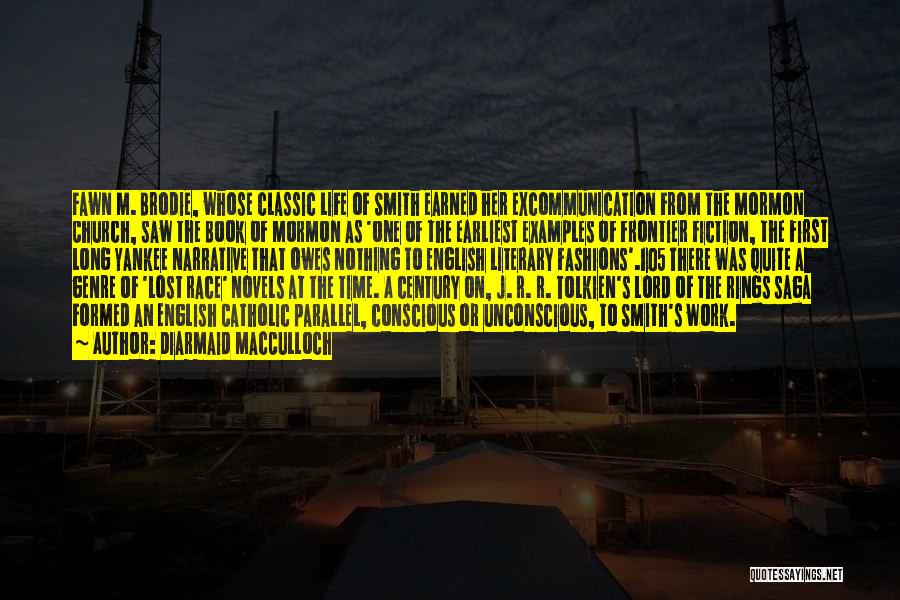
Fawn M. Brodie, whose classic life of Smith earned her excommunication from the Mormon Church, saw the Book of Mormon as 'one of the earliest examples of frontier fiction, the first long Yankee narrative that owes nothing to English literary fashions'.105 There was quite a genre of 'lost race' novels at the time. A century on, J. R. R. Tolkien's Lord of the Rings saga formed an English Catholic parallel, conscious or unconscious, to Smith's work. — Diarmaid MacCulloch
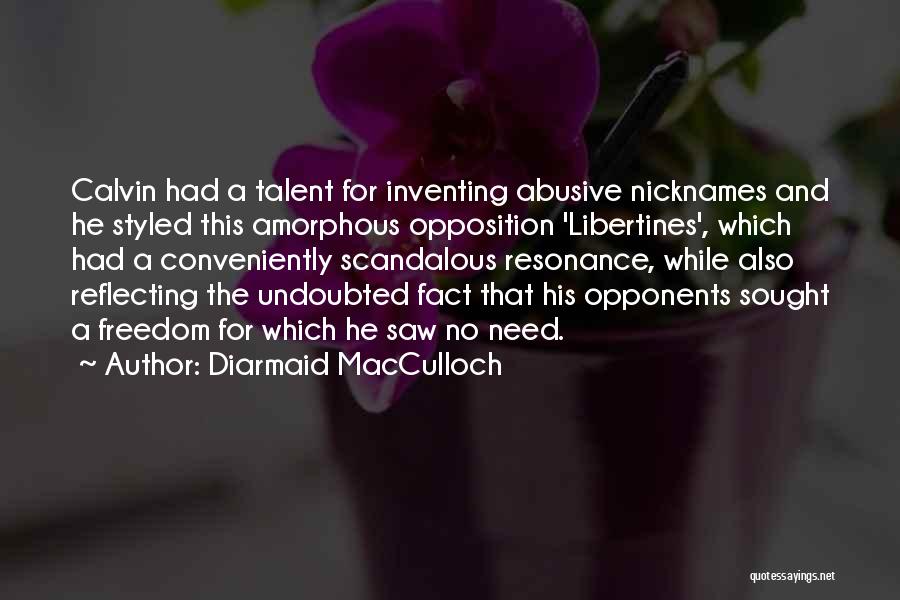
Calvin had a talent for inventing abusive nicknames and he styled this amorphous opposition 'Libertines', which had a conveniently scandalous resonance, while also reflecting the undoubted fact that his opponents sought a freedom for which he saw no need. — Diarmaid MacCulloch
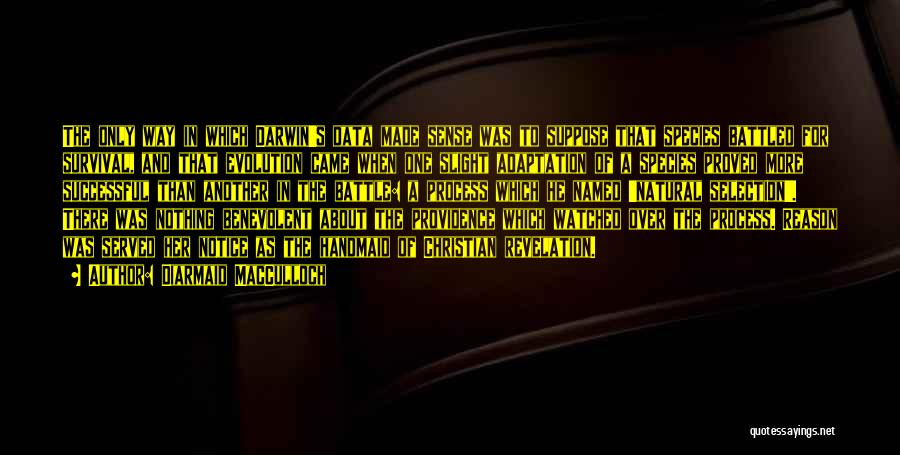
The only way in which Darwin's data made sense was to suppose that species battled for survival, and that evolution came when one slight adaptation of a species proved more successful than another in the battle: a process which he named 'natural selection'. There was nothing benevolent about the providence which watched over the process. Reason was served her notice as the handmaid of Christian revelation. — Diarmaid MacCulloch
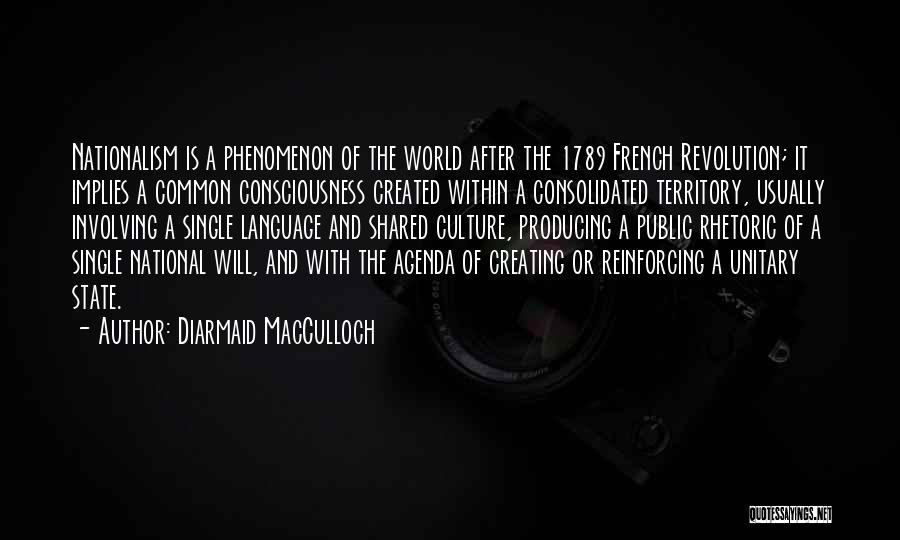
Nationalism is a phenomenon of the world after the 1789 French Revolution; it implies a common consciousness created within a consolidated territory, usually involving a single language and shared culture, producing a public rhetoric of a single national will, and with the agenda of creating or reinforcing a unitary state. — Diarmaid MacCulloch





